Ballroom culture, pioneered by Black, queer crowds in the 60s, thrives at Bushwick nightclub
June 30, 2023, 6:01 a.m.
As municipalities around the country are passing measures to curb queer performances and literature, 3 Dollar Bill's weekly Open to All event is doubling down as an unapologetically queer space.
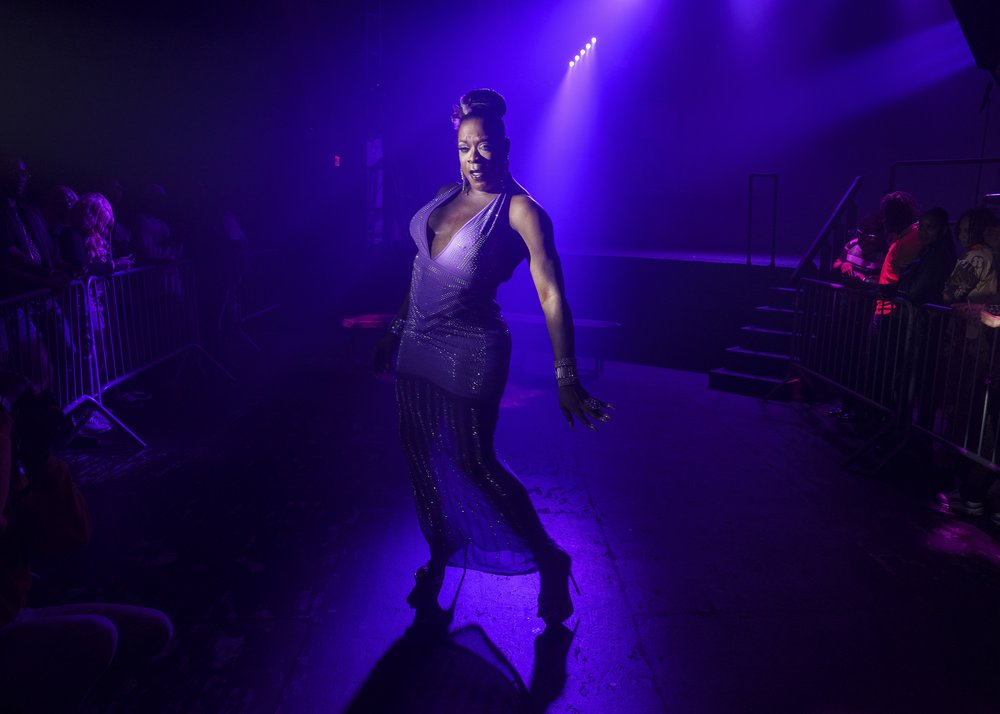
In the minutes before 11 p.m. every Monday night – when many New Yorkers are tightly tucked into their beds – hundreds of people, including a few celebrities from time to time, gather outside 3 Dollar Bill, a Queer-owned and operated nightclub in Bushwick, Brooklyn, waiting in excited anticipation for the night’s main event.
Finally it’s time.
Performers strut to center stage, twisting and turning their hands to mimic a helicopter propeller, their legs and heads contort to the pulsing beat of the dance music that drowns out everything except raucous cheers saved for the most impressive moves.
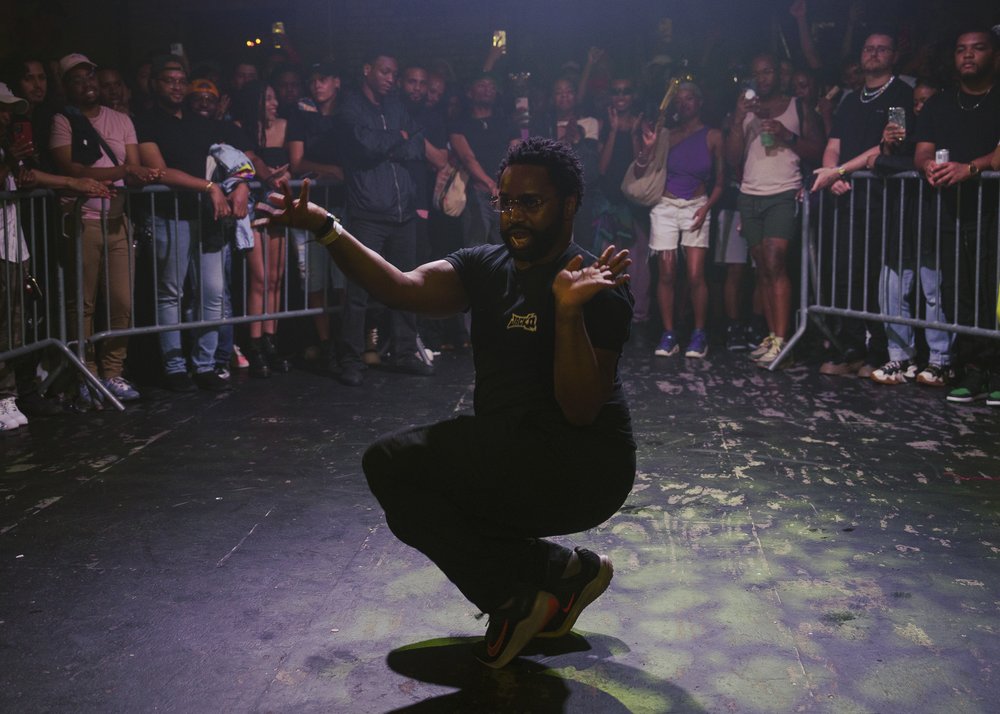
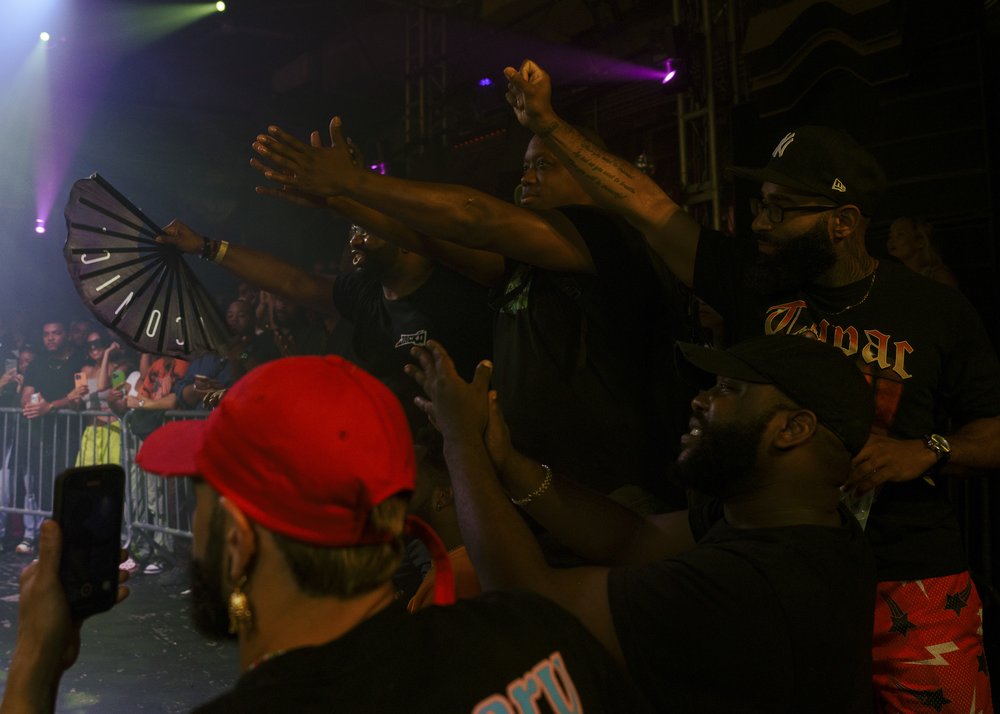
When performers haven’t quite nailed a move, the silence is deafening.
Their dance style, known as voguing, has been part of mainstream culture for the last three decades, a highly stylized dance characterized by gravity defying drops and dips, rapid hand movements and seemingly anatomically impossible body bends.
I come from an era where ballroom is all we had. People rarely could get jobs because we were gay or trans and Black. Back then, people didn't want to hire a lot of us, and so all we had was ballroom.
Icon Bugz, a performer in the ballroom scene for over 20 years, on the inclusivity of ballroom.
As municipalities around the country are passing measures to curb queer performances, literature and events where drag queens read to children are drawing increased protests, 3 Dollar Bill’s weekly Open to All ballroom performance night is doubling down as an unapologetically queer space where patrons are free to express themselves. The weekly event is also a lifeline for community building in a way that many say they can’t find elsewhere.
“It's a space and a place that was created by us because we didn't have the opportunity to sort of really be ourselves in society, so appreciate that,” said Tim Tobias, founder of Ballroom We Care, an organization that’s often present at Open To All nights doing substance abuse outreach “There's still space for anybody. You can come in and be yourself. We have categories for everybody."
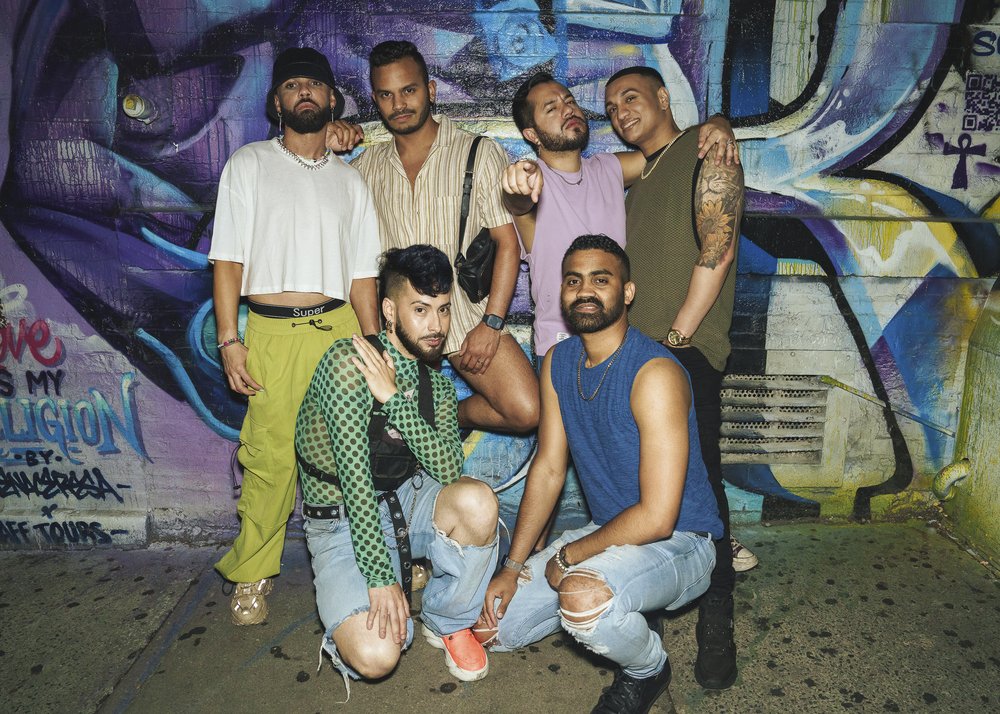
Known as OTA for short, the series invites people to express themselves through dance, lip syncing battles, and modeling, without the pressure of following traditional ballroom etiquette that are category specific, requiring performers to stick to a dress code, dance move or stay on a particular theme.
They come to socialize, spectate or participate in the main event, a ball, which features people performing their best moves in various categories, like hand performance, which judges how well someone can entertain the room with their hands, “sex siren” – a competition over how well performers can seduce the judges with their routines – and “face” to determine the prettiest competitor.
Some participants win money, name recognition, or bragging rights – but for many, that’s the last thing on their mind.
Jalen Ramsey used to watch YouTube clips of people sashaying competitively at events, a category known as “runway” where people try to serve their best supermodel walk. He moved to the city in June from Virgina and said Open To All is where he hopes to make friends— and maybe one day start walking in the “runway” category himself.
“I fell in love with it as soon as I saw it, but I'm from the South,” Ramsey said. “I never really saw myself doing anything with it. And then very recently I just made the push to come up here and I was like, ‘I'm gonna try and do this.’”
Michelle Thompson, who attended Open To All with her girlfriend during Pride Weekend, said she needs spaces like 3 Dollar Bill to escape the grind of work and school life.
“Everyone has earned the privilege to just be themselves,” she said. “After a week of cosplaying as a corporate drone or just being whatever you have to be in the real world, it's nice to be yourself.”
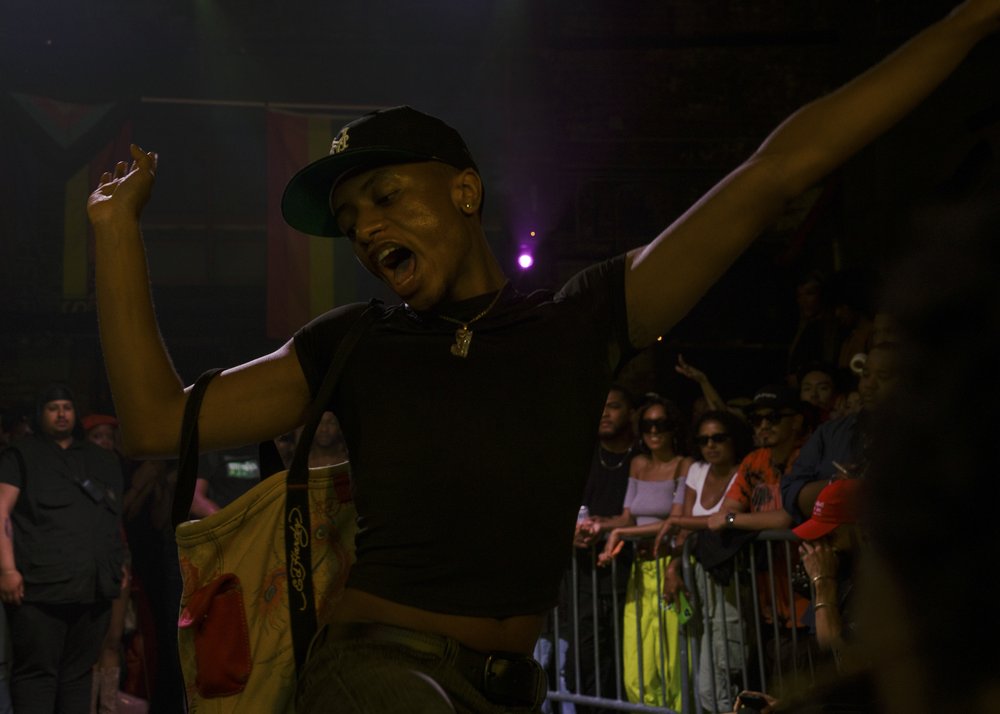
Open to All was created in July 2019 by Legendary Leggoh JohVera who’s made a name for himself in the ballroom community as a commentator, a person who raps spontaneous chants over a beat.
"I've done like one off gigs or whatever, but a weekly situation on this level was definitely a learning process. I was very grateful to 3 Dollar Bill for giving me grace to improve as an event producer,” JohVera said.
Rather than simply create a space to socialize, JohVera wanted to spotlight talent in the LGBTQ community.
“I was just like, what's something else that I can have that can get the girls out there and it'd be beneficial?” he said.
JohVera decided to incorporate a pre-show: a one-hour event before the main ball, with patrons taking part in friendly competitions, drag queens lip-syncing songs and up-and-coming singers and rappers showcasing new material or learning how to improve their stage presence.

Icon Bugz, a performer in the ballroom scene for over 20 years, said he appreciates how Open to All is less critical of its attendees than other ballroom events he’s experienced. Instead of judges intensely scrutinizing participants, Bugz said the weekly event is about getting exposure that hopefully leads to real opportunities that pay.
“OTA gives the space for those who really are ballroom to get noticed and get seen and get gigs and stuff like that,” Bugz said. “I love that, because I come from an era where ballroom is all we had. People rarely could get jobs because we were gay or trans and Black. Back then, people didn't want to hire a lot of us, and so all we had was ballroom.”
Balls used to be places where gay men and trans women— who were most likely estranged from their biological family— found their chosen family, becoming members of a “house,” which are a person’s system of support that contain all the inner workings of a traditional family like mother, father, and children. Some of the most well-known houses include the House of LaBeija, House of Nina Oricci and House of Xtravaganza.
From underground to America's living room
Nowadays, aspects of ballroom culture show up almost anywhere. Kids can be seen voguing in school hallways on TikTok, performing so-called “death drops” where they collapse onto the floor like a broken doll. TV shows like “Pose” and “Legendary” have brought ballroom to America’s living rooms. University student groups offer recreational dance classes on how to vogue.
But the New York City ballroom scene that’s now familiar to the masses began to take shape in the late 1960s, after Crystal LaBeija, a Black performer who was a key figure in New York’s queer circles, walked off a drag pageant. Her outburst, known as “reading” – similar to a roast – was captured in the 1968 documentary “The Queen.”
“She thought she should come in first place,” said Michael Roberson, who teaches a class on the history of voguing at The New School’s Eugene Lang College. “She walks off stage in protest, and she does an interesting soliloquy, kind of reading the girl that she lost to and reading the system.”
At that time, Roberson said, most drag ball participants were white. LaBeija argued that the panel of judges were racist towards Black performers. This inspired her and other trans women to throw the first house ball, held in Harlem in 1968. It was a historical moment that would kickstart the current ballroom scene in New York, where competitions consist of entire categories, dances, and a slang that’s unique to the culture, writer Shannon Halliwell notes in the blog All Gay Long.
In 1990, two major works put a new spotlight on voguing and the ballroom scene: “Paris is Burning,” a documentary about ball culture among Black and Latino communities in New York, and Madonna’s “Vogue” a hit single that some felt misappropriated ballroom culture.
“I felt like a white person was stealing,” Roberson said. “Had she said, ‘This is “Vogue,” this is for the ballroom community,’ I would have felt that ballroom was going mainstream. I thought that she took something from ballroom, and made it mainstream. And those are two separate things to me.”
Madonna made a surprise appearance at Open to All in April. Lil Nas X and rising rapper Doechii have also shown up and participated in hosting the main competition. JohVera said he appreciates the support.
“When you think about how much plane trips and hotel stays and food and Uber rides and stuff cost,” he said, “I'm just very grateful that people see it on that level where they see it important enough for them to make OTA a stop when they come out here.”
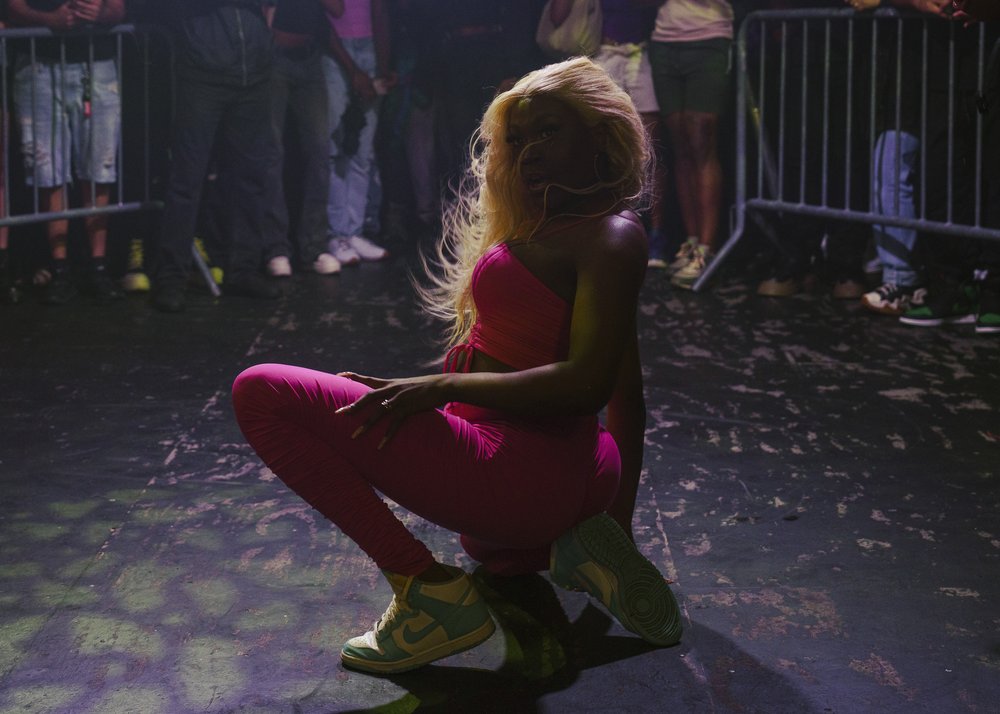
That importance is clear to attendees at 3 Dollar Bill. One performer in the crowd, Legendary Lollipop, doesn’t take part in Open To All as much as he used to. But he says he still shows up regularly to make sure spaces for Black and queer people continue to thrive.
“For us, this is where we can be celebrities, and not have to worry about judgment from heterosexual or other different communities that don't agree with our lifestyle,” he said. “It’s still always good to show up and show your people that you’re still around, and that you still care and still support them.”
Open To All hosts balls every Monday night at 3 Dollar Bill in Bushwick, and in August will host voguing classes and a ball for the TSQ Live series in Times Square.